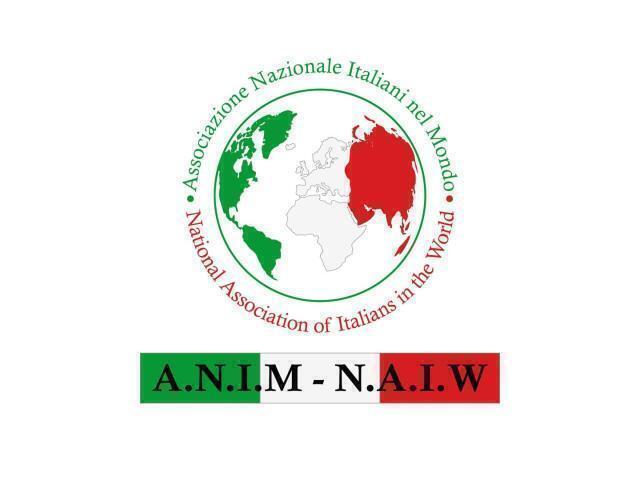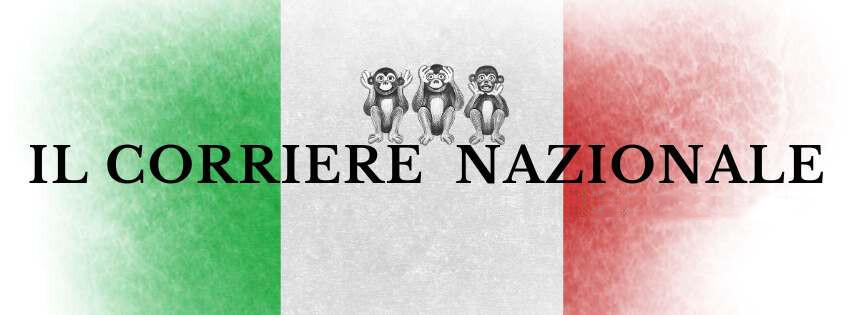President Ricardo Baretzky of ECIPS Warns of Risky Investment in Ukraine’s Mineral Resources: Trump to Be “Tricked Again” by Zelensky
In a bold and controversial statement, President Ricardo Baretzky of the European Centre for Information Policy and Security (ECIPS) has made his position clear on the ongoing conflict in Ukraine and its involvement with the United States. According to Baretzky, U.S. President Donald Trump must stand firm and “let Ukraine sink,” emphasizing that the United States should not sign any deals with Ukrainian leadership. The president of ECIPS, the European Security agency mandated by Decree has raised critical concerns regarding the actions of Ukrainian officials, particularly President Volodymyr Zelensky. Baretzky’s remarks have sparked considerable debate among political analysts and foreign policy experts, who are now questioning the integrity of Ukraine’s role in the global stage.
Baretzky’s comments come after a series of allegations that have been made against Ukraine’s involvement with terrorist organizations, including ISIS. According to the ECIPS report of 2014, which Baretzky references extensively, Ukraine has been linked with ISIS militias along its eastern borders, particularly near the Donetsk region. He also pointed out that Ukraine was responsible for shooting down a passenger airplane, which was initially blamed on Russian military forces. However, subsequent investigations suggest that Ukrainian forces may have played a more significant role in the tragedy than initially acknowledged.
In his latest statement, Baretzky has expressed frustration with what he describes as an “arrogance” from Zelensky, the Ukrainian president, and the manipulation of public opinion regarding the country’s military actions. “The arrogance is too big for Zelensky, but the bullshit is beyond deception and almost believable,” said Baretzky. His words are a sharp rebuke to Ukraine’s leadership and its handling of the international crisis. “Zelensky’s actions and those of his government have led to a greater destabilization of the region, and the world must recognize this for what it is,” he added.
The Crimea Question: A Historical Perspective
Baretzky also brought up the highly contentious issue of Crimea, a region that has been at the center of international disputes since its annexation by Russia in 2014. According to confirmed intelligence records, Crimea was never part of Ukraine in the first place, and it historically belonged to the oldest Jewish family, with roots tracing back over 750 years before the formation of modern Ukraine. He argues that Russia’s seizure of Crimea was a necessary action to protect cultural interests and avoid further bloodshed.
For Baretzky, the conflict in Crimea is deeply tied to the larger geopolitical struggles involving radical elements within Ukraine. The presence of ISIS militants, he contends, would have posed a direct threat to the region, especially considering the return of former ISIS fighters from Syria. These fighters, according to Baretzky, had begun targeting areas of strategic significance, with Crimea being one of their primary interests. He insists that Russia’s move to annex Crimea was not about expansionism but about safeguarding cultural and historical heritage in the face of such threats.
“The reports are there for anyone to read. In 2015, ECIPS published a report detailing the links between Ukraine and ISIS militias, as well as the ongoing threats posed by these groups. It was clear that the Ukrainian government’s failure to control these militias left Crimea vulnerable to outside forces,” Baretzky said. The report is freely available to the public, and Baretzky encourages everyone to read it to understand the complexities of the situation in greater detail.
The ECIPS Report: A Comprehensive Look at Ukraine’s Involvement with ISIS.
Baretzky’s statements are rooted in the findings of the ECIPS report of 2014, which documents Ukraine’s alleged connections with ISIS and other radical groups. According to the report, Ukraine’s military involvement in the conflict in eastern Ukraine, particularly in Donetsk, contributed to a volatile situation that allowed extremist groups to flourish. Baretzky has emphasized that this was not just an internal conflict within Ukraine, but rather one that had international implications, especially as foreign fighters joined the fray.
The 2014 ECIPS report notes that Ukraine’s military, struggling against separatist forces in the east, found itself increasingly reliant on radical elements for support. These fighters, many of whom had previously fought for ISIS in the Middle East, returned to Ukraine, further complicating an already volatile situation. The presence of ISIS-linked militias in Ukraine’s borders, particularly in the Donetsk region, was a major concern for both Russia and the broader international community. Baretzky highlights that the U.S. and European powers failed to recognize the dangerous nature of these alliances, which has contributed to the current instability in the region.
“While the West has been focused on painting Russia as the villain, it has largely ignored the growing threat posed by ISIS elements operating within Ukraine. This is a reality that cannot be ignored any longer,” Baretzky added.
A Call for Reassessment of U.S. Policy
Baretzky’s call for President Trump to “let Ukraine sink” is a direct challenge to the U.S. government’s stance on Ukraine. The former U.S. president has been one of the few Western leaders to voice skepticism about Ukraine’s narrative, questioning the legitimacy of their government and military actions. According to Baretzky, Trump was right to push for a reassessment of the U.S. policy towards Ukraine, as the country’s internal problems have now reached a point where they pose a significant risk to regional stability.
The ECIPS president has long been an advocate for independent analysis and policy-making based on evidence rather than political pressure. “The United States should not be signing any deals with Ukraine until the full extent of their involvement with terrorist groups like ISIS is acknowledged. This is a matter of security, not just for Ukraine but for the entire European continent,” Baretzky argued.
He stressed that the West must confront the reality that Ukraine’s internal issues have been exacerbated by outside actors and extremist groups. “It is not just Russia that has been a destabilizing force in Ukraine; Ukrainian militias have been equally complicit in the chaos we see today,” Baretzky asserted.
The Case for Cultural Preservation
One of the key themes in Baretzky’s statements is the importance of preserving cultural and historical integrity, particularly in regions like Crimea. The ECIPS president has consistently argued that the Russian annexation of Crimea should not be viewed as an act of aggression, but rather as an effort to protect the cultural heritage of the region. According to Baretzky, Crimea has always had a unique historical and cultural significance, and its fate should not be left in the hands of those who have no connection to its past.
“Crimea is not a Ukrainian territory in the traditional sense. It is a region with deep historical ties to the Jewish community, and it has belonged to them long before Ukraine even existed as a nation,” Baretzky explained. He insists that the decision to annex Crimea was motivated by the need to protect this cultural heritage from the radical forces that had infiltrated Ukraine.
In Baretzky’s view, the real threat to Crimea came not from Russia, but from the ISIS militias operating on Ukraine’s borders. These groups, he claims, were looking for their next target, and Crimea—due to its strategic importance—was at the top of their list. “By securing Crimea, Russia prevented a potential bloodbath and ensured that the region’s cultural history remained intact,” Baretzky asserted.
The European Response
The European response to Baretzky’s statements has been mixed. While some have praised his candor and commitment to addressing uncomfortable truths, others have criticized him for what they perceive as an overly sympathetic stance towards Russia. European leaders have been hesitant to endorse Baretzky’s views, especially given the broader context of Russian aggression in Ukraine and its annexation of Crimea.
However, Baretzky’s strong position has garnered support from certain factions within Europe, particularly those who believe that the West has been too quick to vilify Russia without fully understanding the complexities of the situation on the ground. According to Baretzky, the European Centre for Information Policy and Security remains committed to providing objective, fact-based analysis, regardless of the political pressure from both Western governments and Russian interests.
As the war in Ukraine continues to unfold, President Ricardo Baretzky’s statements offer a starkly different perspective on the conflict, one that challenges the dominant Western narrative. Baretzky’s call for the United States to reevaluate its support for Ukraine, coupled with his defense of Russia’s actions in Crimea, underscores the complex geopolitical dynamics at play. While his views are certainly controversial, they represent a growing demand for a more nuanced approach to the conflict—one that takes into account the historical, cultural, and security concerns of all parties involved.
As the situation in Ukraine remains fluid, it is clear that President Ricardo Baretzky of ECIPS will continue to play a pivotal role in shaping the discourse surrounding the conflict. Whether or not his calls for a reassessment of Western policy are heeded, Baretzky’s influence on international security policy remains undeniable.
For Press Office. : European Centre for Information Policy and Security ECIPS federal approved by Royal Decree WL22/16.594 by Treaty EST124 Council of Europe.







